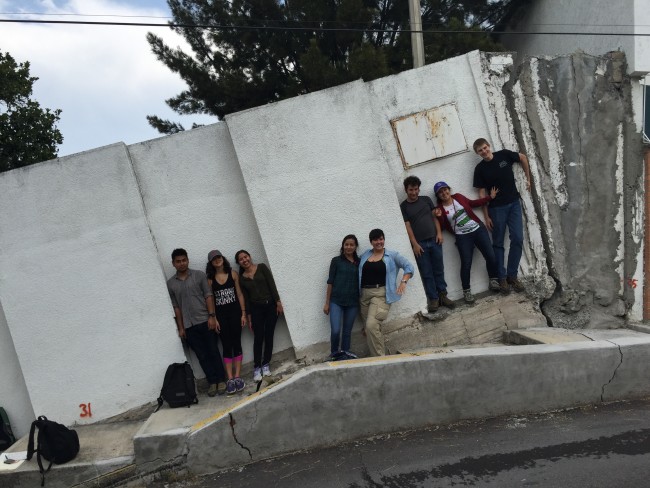New Class Promotes Cross-Cultural Skill Exchange for Geoscientists
October 13, 2016

A new exchange program between UT Austin and the National Autonomous University of Mexico (UNAM) brought together students from both sides of the border to hone their geosciences and computer science skills during a six week summer course.
Sixteen undergraduate students (eight from UT Austin, and eight from UNAM) enrolled in the course, called “Introduction and Application of Intelligent Systems for Geosciences.”
Students conducted fieldwork for problem-based research projects in the Texas Hill Country and the Central Mexican Altiplano that ranged from evaluating risks from groundwater induced subsidence to capturing a detailed 3-D map of karst and caves. In the process of completing the research, they leveraged cloud services for data management and used the Stampede supercomputer at the Texas Advanced Computing Center (TACC).
Each project included data collection, integration, analysis, processing, visualization and preservation.
“A big part of the future of geosciences is about is figuring out how to efficiently merge data from across different sources, analyze it and recognize important patterns,” said lead instructor Suzanne Pierce, a computational geoscientist at the Jackson School of Geosciences and TACC.
Class co-leaders were Ritu Arora, a computer scientist at TACC; Gibran Fuentes Pineda, a computer scientist at UNAM; and Enrique Cabral Cano, a geoscientist at UNAM’s Institute for Geophysics. Pierce, the co-leaders, and a portion of the students will present class research findings at the American Geophysical Union’s annual meeting in December.
The class was funded by a grant through 100,000 Strong, an education initiative launched by President Barack Obama that seeks to increase the number of U.S. student studying in Latin America and Latin American students studying in the U.S. The class will be offered again in summer 2017.
Back to the Newsletter